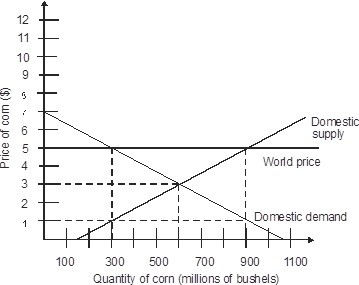The symmetry principle in economics means that
A) all individuals must have similar outcomes.
B) all similar individuals must be treated similarly.
C) individuals must have opposite outcomes.
D) similar individuals must have similar outcomes.
B
You might also like to view...
Refer to Figure 5-4. Answer the following questions:
1. What would be the equilibrium price and quantity if consumers had to pay the full price of medical services? 2. With insurance acting as a third-party payer, what price will consumers pay for medical service? 3. With insurance acting as a third-party payer, what price will doctors receive for medical service? 4. With insurance acting as a third-party payer, what will be the equilibrium quantity of medical services? 5. With insurance acting as a third-party payer, what will be the value of the deadweight loss?
If society is experiencing a net social cost from the production of a good, this implies that
A. the socially optimal level of output is being produced and society is willing to accept the costs that result. B. producers would rather produce the output at which marginal social cost equals the demand for the good. C. negative externalities are involved in the production of this good. D. none of the above
When people hold money to make anticipated purchases of goods and services, they are exercising the _______ demand for money.
A) speculative B) exchange C) transactions D) precautionary
In an open economy, the price of a bushel of corn is ________. 
A. $3 B. $7 C. $5 D. $1